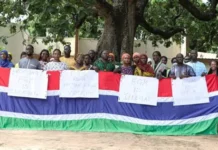A wave of African leadership is rising in response to U.S. President Donald Trump’s controversial decision to cut foreign aid to the continent — a move that is reshaping the longstanding dynamics of development assistance.
Speaking at a business summit in Abidjan on May 14, U.S. Ambassador Troy Fitrell confirmed Washington’s new direction: “Trade, not aid, is now the pillar of our policy in Africa.”
The statement ended speculation over the Trump administration’s approach, firmly closing the door on billions once earmarked for humanitarian and development assistance.
In 2023 alone, the United States spent $71.9 billion on foreign aid — only 1.2% of its federal budget — with Africa traditionally receiving the lion’s share.
But Trump, who has long criticized aid as “wasteful,” has reoriented U.S. foreign policy away from handouts and toward transactional trade deals.
While the decision sparked initial outrage across African capitals, some leaders have seized it as a wake-up call.
“Africa now finds itself at a crossroads,” said Rwandan President Paul Kagame at the February African Union summit.
“The work of building our continent, including our healthcare systems, cannot be outsourced to anyone else.”
President Kagame urged member states to invest in African-led health initiatives, including strengthening the African Centres for Disease Control and creating new partnerships among governments, businesses, and philanthropists.
The shift comes amid pressing humanitarian needs. In Zimbabwe, millions faced hunger in 2024 following a prolonged drought, while in Somalia, internally displaced families depend on dwindling food aid shipments — once heavily supported by USAID.
Now, with funding pipelines drying up, African governments are being challenged to develop internal capacity and reform aid dependency.



















